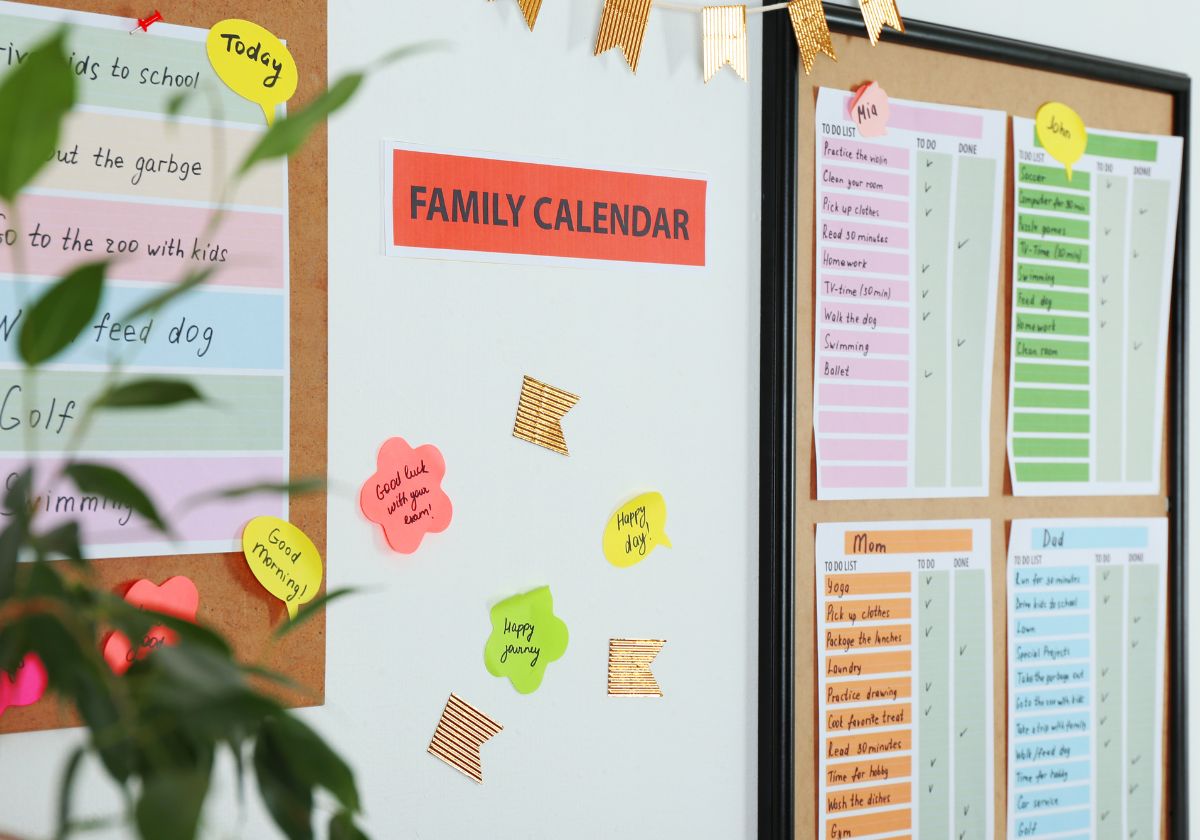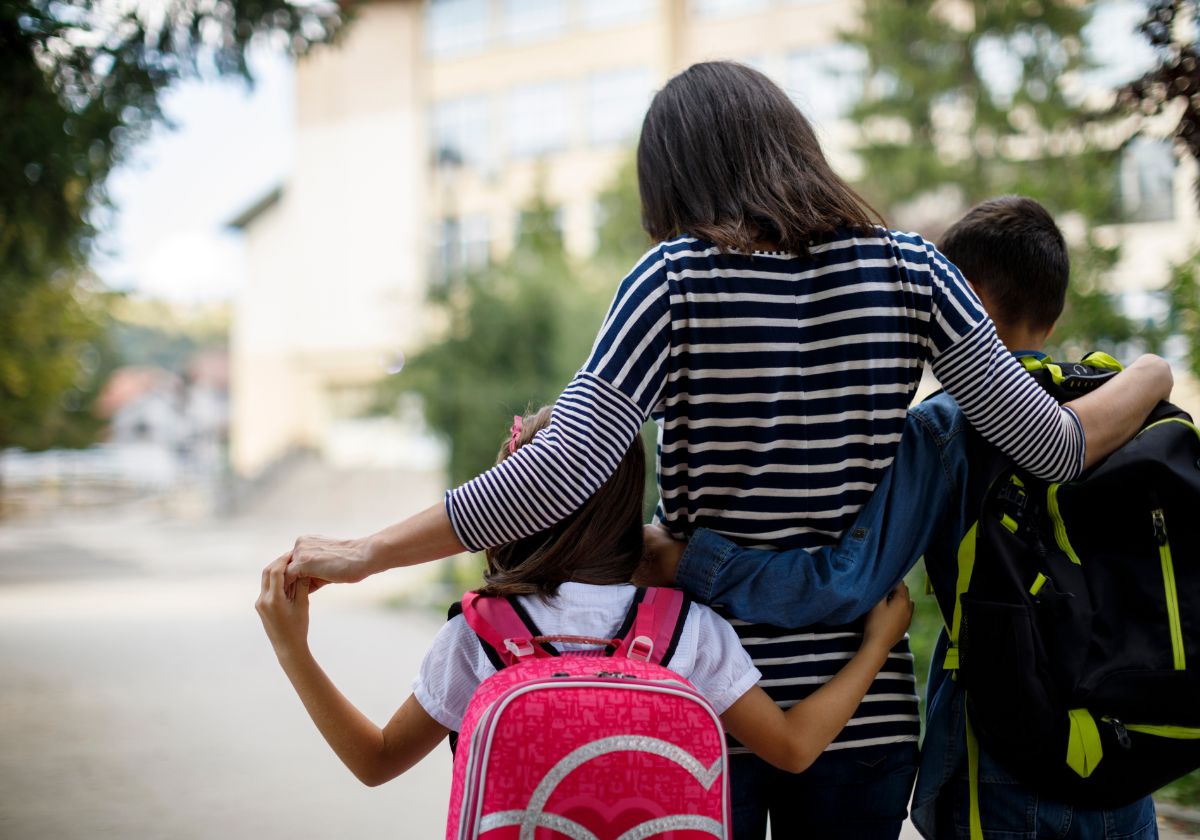Back-to-school season is upon us, and whether you have a preschooler or soon-to-be college student, this time can be exhilarating yet overwhelming. We have strategies to help you foster the excitement and navigate all the feels! Whatever your feelings, we get it.
Read and Talk/Walk and Talk
At JAM Teaching and Consulting, we always recommend using books as a launching pad for conversation. If you don't know the words to say or don't feel like you are equipped, pick up a book and start reading. Books are a great way to connect with your child and help make connections to life. Are you looking for some great book recommendations? Check out JAM Teaching and Consulting's Instagram page.
For older students, a walk and talk is always a great strategy to engage in conversations. When walking, you are looking ahead and not having to hold (or avoid) gaze with another person. This makes conversation easier. Try not to force it, but let the conversation flow. You can talk about simple things happening in the world and life and then slowly ease into the more significant conversations. If your teen is not interested in talking, use the time to talk about funny, easy subjects or observe what you see on your walk while reassuring them you are there for them.
 |
Routines
Start to establish and talk about some of the routines now! To ensure a successful start to the school year, it is essential to initiate those routines now. Having many changes and transitions at once can be overwhelming for a child. If you slowly begin some of the transitions in the schedule now, they feel routine and ordinary by the start of the school year. Some of these routines could be a sleeping and eating schedule. It can also include morning routines and preparing for your day. This can include getting familiar with the school schedule for the day/week for older students. It's not just the school schedule that is important to consider, but also the sports and extracurricular schedule. Summer is a great time to initiate the executive functioning process of time management.
Another excellent tool for students in the upper grades is to become familiar with the technology and applications they will be required to use in school. Most high schools are entirely digital, and helping a child prepare to navigate all the programs they are going to be required to use is helpful.
 |
Meet and Greet
You would be surprised at all the things kids wonder and worry about as they begin a new school year. They are curious about the shape of the desks, the style of chairs, access to supplies, bathroom policies, and classmates' names galore! Going on a school and classroom tour is an easy way to help your child feel more comfortable and confident starting the year. Even better if you could meet the teacher during the tour. A positive interaction between teacher and student can make a world of difference to a child when starting the school year on a high note!
Older students face many unique factors when transitioning to school lockers; technology, parking, and navigating a large school building are a few. Many middle and high school students stress about transitioning classes and doing a walk-through of the transitions before the school year starts can be a game changer. Lockers can create a huge source of stress for students (and adults!) but are easily managed through practice and problem-solving. Helping your child brainstorm and practice strategies that they can use when they are independently navigating their school day is important. Imagine thinking aloud with your child,
"If you can't open your locker, what can you do to get help?"
"Do you think there will be other students facing the same issue?"
Normalizing and preparing for situations allows everyone to approach their day more easily.
 |
Be Present and Supportive
Being present and supportive are powerful tools for a child of any age. Being supportive can include acknowledging the multitude of feelings a child can have all at one time. It can mean nurturing a child's feelings around separation anxiety and giving them tools if they feel sad throughout the day. You can create a list with your child of "fun things we will do together after school" for your child to find comfort throughout the school day. Feeling extra creative, write a joke or love note and put it in their lunchbox for a fun surprise. If your child can anticipate what to expect in advance, their (and your) stress will be less, and their ability to learn and interact with their environment and communication will increase! Help your child understand what to expect and let them share their feelings about the things that await. For older kids, create a space for them to be.
Many times with older kids, they talk more when you expect less. Sometimes, teens need someone to be physically around them, not talking to or touching them. If you allow that space and create that presence, there is a significant probability your child will warm up to you and ask for a snuggle or start talking. This presence and connection are always important, especially when significant changes and transitions in life, including the start of a new school year.
No matter how you prepare for the start of this school year, this is one example of working through life transitions. Creating a space of connection, love, and security is invaluable to start the school year and live life.
 |
Meet the Author Julia Mahowald
Julia, a National Board Certified Teacher M. Ed. Learning Behavior Specialist M. Ed. Reading Specialist Orton-Gillingham Trained, IMSE is the Founder & CEO of JAM Teaching and Consulting in Chicago, IL. She is a seasoned teacher with over 15 years in the field. Her background is in special education with specialists in reading, behavior, and regulation, as well as dyslexia. She enjoys supporting families with kids that are complex and hard to figure out. Her ability to assess and analyze all parts of the child to create a cohesive plan and approach to help students make gains is innovative and has a proven track record.
As an educational consultant, she supports families as they navigate the sometimes unfamiliar and intimidating space of understanding best-fit schools for their child, the IEP and 504 process as well as navigating difficulties within the school setting. She and her highly qualified tutoring team provide bespoke tutoring for students from preschool to college.
About JAM Teaching and Consulting
JAM Teaching and Consulting offers in-person and online tutoring for students of all ages and abilities, from preschool to college-aged. Their educational professionals not only assist with reading, math, and writing but also with test preparation, executive functioning, regulation, and social-emotional learning skills. JAM Teaching and Consulting can also help students with special education needs related to dyslexia, autism, visual & hearing impairments, communication impairments, and more. JAM professionals can also assist with navigating the IEP process and serve as a consultant to help bridge success at school and home.
Find out all that JAM Teaching and Consulting offers at www.jamteaching.com or contact them directly at (312) 890-2542 or by emailing contact@JAMteaching.com.



